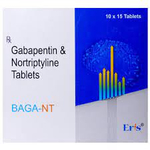cobina
Introduction to Cobina
Cobina is a widely recognized supplement primarily used to address vitamin B12 deficiencies. It is formulated with Methylcobalamin, a bioactive form of vitamin B12 that is crucial for various bodily functions. This supplement is available in multiple forms, including tablets, injections, and syrups, catering to diverse patient needs. Cobina is particularly beneficial for individuals with dietary restrictions, certain medical conditions, or increased nutritional needs that lead to a deficiency in vitamin B12. By ensuring adequate levels of this vital nutrient, Cobina supports overall health and well-being.
Composition of Cobina
The active ingredient in Cobina is Methylcobalamin, also known as Mecobalamin. This compound is a neurologically active form of vitamin B12, essential for nerve health, red blood cell production, and DNA synthesis. Methylcobalamin plays a pivotal role in maintaining the health of nerve cells and supporting the formation of myelin, the protective covering around nerves. It also aids in the conversion of homocysteine to methionine, an amino acid that is vital for cardiovascular health. By enhancing these biological processes, Methylcobalamin contributes significantly to Cobina's effectiveness in treating and preventing vitamin B12 deficiencies.
Uses for Cobina
- Treatment of vitamin B12 deficiency
- Support for nerve health and function
- Improvement of red blood cell formation
- Assistance in DNA synthesis
- Alleviation of symptoms associated with pernicious anemia
- Potential support for cognitive health and function
Side Effects of Cobina
- Mild diarrhea
- Itching or rash
- Headache
- Nausea or vomiting
- Feeling of swelling in the body
- Fatigue or weakness
Precautions of Cobina
Before using Cobina, it is important to consult with a healthcare professional, especially if you have any pre-existing medical conditions or are pregnant or breastfeeding. Individuals with allergies to vitamin B12 or cobalt should avoid using this supplement. It is also essential to adhere to the recommended dosage to prevent potential side effects. Patients with kidney disease or Leber's disease should exercise caution, as high doses of vitamin B12 may exacerbate these conditions. Regular monitoring of vitamin B12 levels is advised to ensure optimal health outcomes.
Conclusion
Cobina is a versatile supplement designed to address vitamin B12 deficiencies and support overall health. Available in various forms, including tablets, injections, and syrups, it caters to the diverse needs of patients. With its active ingredient, Methylcobalamin, Cobina effectively supports nerve health, red blood cell production, and DNA synthesis. By understanding its uses, side effects, and precautions, individuals can make informed decisions about incorporating Cobina into their health regimen. Always consult with a healthcare provider for personalized advice and dosage recommendations.
Similar Medicines
Available in 2 variations

Cobina 1500mcg Injection
Cobina 1500mcg Injection
Methylcobalamin/Mecobalamin (1500mcg)
vial of 1 Injection

Cobina 500mcg Injection
Cobina 500mcg Injection
Methylcobalamin/Mecobalamin (500mcg)
vial of 1 Injection
Related Posts

1:15
Are Your Hormones Out Of Balance? Signs & Symptoms!

1:15
Amazing Benefits of Flaxseeds | Best Way to Eat Flax Seeds Daily!

1:15
Why Is There Blood in Your Poop? Causes, Symptoms, and When to See a Doctor!

1:15
How Do You Know If You Have a Vaginal Infection? Warning Signs!

1:15
Top Health Benefits of Cinnamon | How to Use It for Better Health!
Disclaimer : This information is not a substitute for medical advice. Consult your healthcare provider before making any changes to your treatment . Do not ignore or delay professional medical advice based on anything you have seen or read on Medwiki.
cobina
Prescription Required
Manufacturer :
Symbiosis LabComposition :
Methylcobalamin/Mecobalamin (1500mcg)
















.svg)
